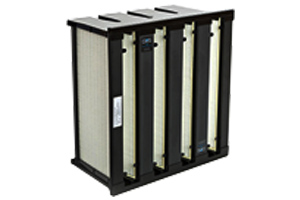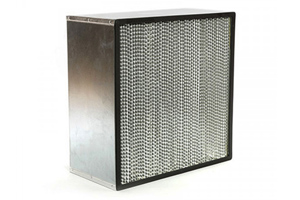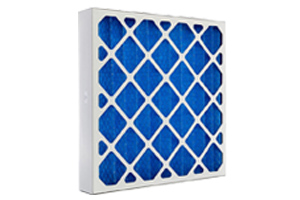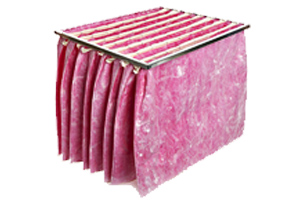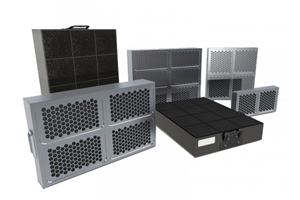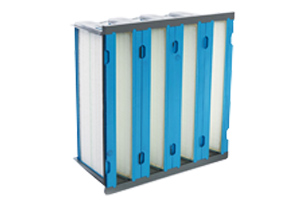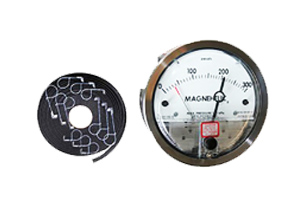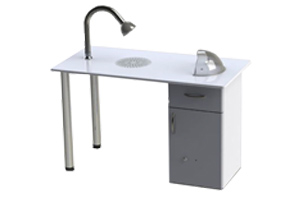Техническое обслуживание GVS

Обеспечение хорошего качества воздуха в помещении, независимо от того, указано ли это в соответствии с правилами или рекомендациями профессиональных организаций - зависит не только от качества воздушных фильтров, установленных в системе.
Через специализированное инженерное подразделение GVS предоставляет широкий спектр вспомогательных услуг от общего консультирования и модификации системы до оценки состояния окружающей среды, мониторинга состояния воздушных фильтров и проверки HEPA.
Внедрение таких стандартов, как EN: 13779, новые правила утилизации отходов, а также необходимость сберегать энергию и уменьшать «углеродный след», побуждают владельцев зданий и операторов исследовать новые меры для обеспечения оптимального использования систем обработки воздуха.
Общее управление фильтрамиКонцепция комплексного управления фильтрами была впервые разработана подразделением GVS On Site Services более десяти лет назад. Цель состояла в том, чтобы создать единый экспертный центр, способный управлять всеми аспектами качества воздуха внутри здания, либо напрямую для владельца, либо для FM-компании, с которой был заключен контракт на общее управление зданием. GVS On Site Services обладает опытом и знаниями, чтобы гарантировать, что их клиенты отвечают всем нормативным требованиям сейчас и в будущем. Клиенты выбирают либо комплекс, либо конкретные услуги, доступные в соответствии с их требованиями.
Управление энергосбережением
Снижение энергопотребления
Степень снижения энергопотребления будет зависеть от ряда факторов, в том числе от общего состояния агрегата и типа установленных воздушных фильтров.
Центральным в подходе GVS к управлению качеством воздуха является концепция "присутствия на производстве". Деньги легко теряются, а качество воздуха ухудшается из-за плохой установки воздушных фильтров, в результате чего воздух полностью обходит фильтр через изношенные уплотнения, отсутствие фиксирующих зажимов или неправильного размера рамки, используемой на установленных фильтрах. Установка мешочного фильтра в неправильной плоскости потребляет больше энергии, чем необходимо. "Присутствовать на производстве" и провести всестороннее исследование - первый шаг к экономии средств клиента.
Мониторинг падения давления на фильтре имеет решающее значение для понимания того, как работает система, и, что особенно важно, для расчета энергопотребления конкретной системы. Служба GVS On Site Service может выполнить эту задачу или обучить инженеров на месте действиям, необходимым для оценки энергопотребления и потенциальной экономии на воздушных фильтрах.
Оценка энергопотребления
GVS производит ряд энергосберегающих фильтров, и с помощью Eurovent 4/11 можно рассчитать энергию, потребляемую установленными фильтрами, с учетом конкретных условий эксплуатации. Использование энергии может контролироваться инженерами GVS On Site Services или персоналом, обученным тому, как регистрировать и оценивать энергопотребление для каждого AHU.
Очистка системы HVAC
Очистка воздуховодов, модификация и мониторинг состояния
Очистка воздуховодов - одна из самых быстрорастущих услуг, предоставляемых подразделением GVS On Site Services, В то время как правильный выбор воздушных фильтров для окружающей среды и обеспечение герметичного прилегания сведут к минимуму риск скопления грязи в воздуховоде, регулярный мониторинг состояния воздуховодов
требуется в соответствии с Правилами по охране труда и технике безопасности, касающимися технического обслуживания и очистки вентиляционной системы, от января 1996 г. и Руководство по надлежащей практике TR / 17 HVCA - Чистота вентиляционных систем и TM26 CIBSE - Гигиеническое обслуживание вентиляционных каналов офиса. Отдел GVS On Site Services может обеспечить полное обслуживание воздуховодов в соответствии с заявленными регламентами и руководствами по эксплуатации.
Очистка и обслуживание компонентов AHU
Если при системном обследовании обнаруживается загрязнение, особенно на внутренних поверхностях и системных компонентах, таких как батареи нагревателя или охлаждающей установки, рекомендуется провести полную очистку и обслуживание. Накопление грязи на компонентах снижает их эффективность, повышает риск попадания вещества в воздушный поток и его осаждение на воздуховодах или попадание в помещения.
Отдел обслуживания на месте GVS может проводить осмотр системы и любую необходимую очистку и обслуживание.
RAMS и Анализ окружающей среды
Анализ окружающей среды и отбор проб воздуха (загрязняющие вещества в воздухе)
Соответствие стандарту EN: 13779 и возможность для владельцев зданий достичь и сертифицировать самый высокий уровень качества воздуха в помещениях и возможность получения дополнительного дохода требуют оценки воздуха внутри и снаружи помещений.
Служба GVS On Site Services может предоставить полный спектр услуг по мониторингу, независимо от того, разработаны ли они для соответствия требованиям EN: 13779 или для установления причины и необходимых изменений для решения любой проблемы качества воздуха в помещениях.
Мониторинг состояния воздушных фильтров
Меры по мониторингу состоят из множества факторов, цель которых состоит в том, чтобы получить представление о производительности для получения оптимального срока службы фильтра и составить график заказа и замены фильтра, который обеспечивает наиболее эффективное использование ресурсов и минимизирует время простоя системы.
Корпус фильтра, уплотнения, зажимы, дверцы доступа, каркас: оценка и модификация
Обход воздуха вокруг фильтра позволяет значительным количествам твердых частиц проникнуть в систему, загрязняя компоненты системы, воздуховод и занятые участки. Оценка целостности посадки фильтра в корпусе и раме, качества уплотнений и зажимов, а также подгонки дверц доступа позволяет быстро определить, требуются ли какие-либо модификации для устранения утечки воздуха, чтобы обеспечить попадание в систему исключительно отфильтрованного воздуха.
Оценка риска и методология
Производится для всех работ, выполняемых отделом GVS On Site Services, но также доступна как услуга для клиентов, где подобные работы будут выполняться собственными инженерами.
Дополнительный сервис
Проверка противопожарных и дымовых заслонок - тестирование, обслуживание и ремонт.
Установка и проверка HEPA
Отдел GVS On Site Services может предложить полный спектр услуг, включая постоянное тестирование и валидацию.
Лицензированная утилизация отходов
Утилизация отходов воздушного фильтра
Один из самых популярных сервисов GVS On Site Services - удаление и утилизация использованных воздушных фильтров. Это освобождает инженеров и менеджеров клиента от необходимости регистрации по утилизации отходов и подвергаться риску получения штрафов за неправильную утилизацию. Подразделение GVS On Service Services зарегистрировано в соответствии с Законом о контроле за загрязнением (1989) для перевозки контролируемых отходов (регистрация перевозчиков и захват транспортных средств) с 1991 года.
Консультирование и обучение
Обучение калибровке, техническое обслуживание, маркировка и запись
Постоянный мониторинг падения давления на воздушных фильтрах является неотъемлемой частью управления системой очистки воздуха и незаменим для оценки использования энергии. Манометры и магнитные датчики требуют регулярного технического обслуживания, которое может проводить Отдел GVS On Site Services.
Чтобы обеспечить точную запись данных, GVS On Site Services выпускает этикетку AHU, которая предоставляется бесплатно. Возможно обучение по установке и ведению точного учета.
Консультационная служба
Вы думаете, что проблема может существовать теоретически, но не уверены, что она действительно существует. Подразделение GVS On Site Services проведет первоначальное обследование, чтобы дать рекомендации по проблемам и потенциальным решениям.
Учебный семинар CPD - Физика и биология фильтрации воздуха
Этот действительно уникальный учебный семинар рекомендуется для всех, кто связан с фильтрацией воздуха, - инженеров по техническому обслуживанию, климату, консультантам, студентам, инженерам проектов, закупкам, инфекционному контролю и т.д.
Этот курс / семинар одобрен и признан Институтом инженерии здравоохранения и управления недвижимостью (IHEEM).

